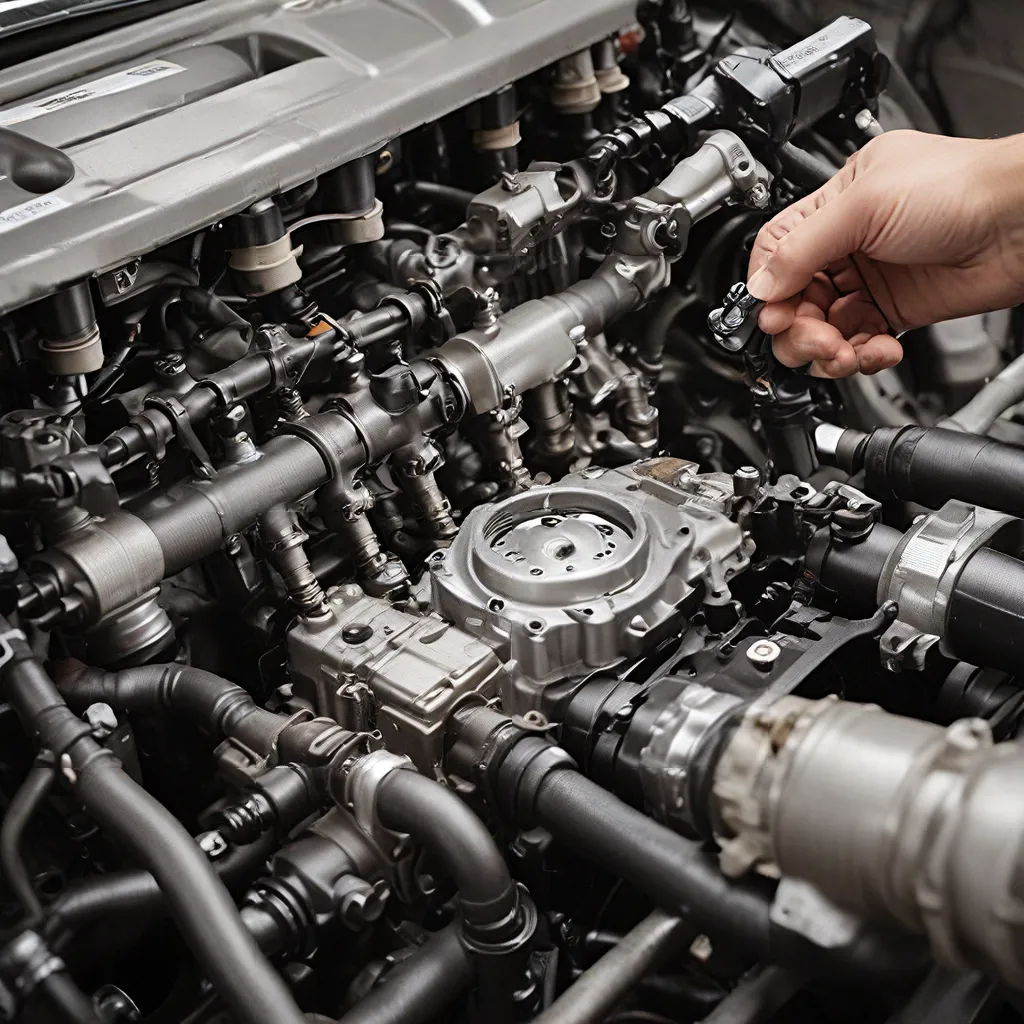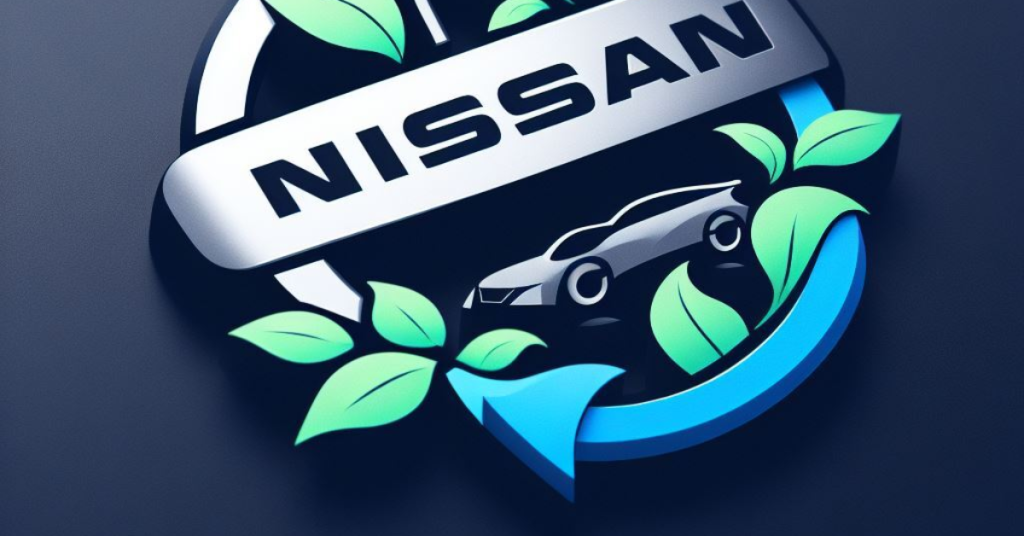
Ah, the joys of car ownership – the rumble of the engine, the gleam of a freshly waxed exterior, and the satisfaction of a well-maintained vehicle. But you know what they say, “the devil is in the details.” When it comes to keeping your Nissan in tip-top shape, one of the most overlooked yet crucial aspects is fluid maintenance.
Today, we’re going to dive deep into the world of Nissan fluid exchanges and uncover the secrets to keeping your car’s systems healthy and happy. So, buckle up, because we’re about to take a journey that will have you feeling like a bona fide automotive expert.
The Importance of Fluid Exchanges
Let’s start with a simple question: why are fluid exchanges so important? Well, my friends, your Nissan’s various fluids are the lifeblood of your vehicle. They’re responsible for lubrication, cooling, and even safety-critical functions like braking.
As stated in the Nissan Rogue owner’s manual, “Brake fluid is hygroscopic, meaning it absorbs water from the air. As the amount of water in the brake fluid increases, the boiling point of the fluid decreases.” This means that if you neglect to change your brake fluid, it can become contaminated and lose its effectiveness, potentially leading to a dangerous situation on the road.
But it’s not just the brakes – your engine oil, transmission fluid, and coolant all play critical roles in keeping your Nissan running smoothly. Neglecting these fluid exchanges can result in accelerated wear and tear, reduced efficiency, and even catastrophic failures down the line. Trust me, you don’t want to be stranded on the side of the highway because you didn’t take the time to keep your fluids fresh.
Knowing When to Exchange Fluids
Okay, so we’ve established that fluid exchanges are essential, but how do you know when it’s time to do them? Well, the answer isn’t as simple as just following a predetermined schedule. The Nissan Murano owner’s manual recommends that you consult your vehicle’s specific maintenance schedule, which can vary depending on factors like driving conditions and your personal usage habits.
For example, if you’re the type of driver who loves to push the limits on the open road, you might need to change your fluids more frequently than someone who takes it easy on their daily commute. And if you live in a particularly harsh climate, like the scorching deserts of the Southwest or the frigid tundras of the North, your fluids may need attention more often.
But let’s not forget about the unexpected, either. As one Quora user shared, running out of brake fluid can seriously compromise your vehicle’s braking performance. In a situation like that, you’d want to address the issue immediately and have your brakes checked by a professional.
The moral of the story? Don’t rely on a one-size-fits-all approach when it comes to fluid exchanges. Keep a close eye on your Nissan’s maintenance needs and be prepared to adjust your schedule as necessary.
Choosing the Right Fluids
Now, let’s talk about the fluids themselves. You can’t just go to the nearest auto parts store and grab the first bottle you see – oh no, my friends, there’s a bit more to it than that. Each Nissan fluid has its own unique specification and requirements, and using the wrong one can lead to all sorts of problems.
For example, did you know that using the wrong transmission fluid can cause your gears to grind and your shifting to become clunky? Or that using the wrong coolant can lead to corrosion and even engine damage? It’s a delicate balance, and you’ve got to get it right.
The good news is that Nissan makes it easy for you. They have a wide range of approved fluids that are specifically designed to work with your vehicle’s systems. All you need to do is consult your owner’s manual or reach out to your local Nissan dealer to ensure you’re using the right stuff.
The Art of the Fluid Exchange
Alright, now that we’ve covered the why and the what, let’s talk about the how. Performing a fluid exchange may seem daunting, but with the right tools and a little bit of know-how, it’s a task that even the most novice DIYer can tackle.
First and foremost, safety should be your top priority. Make sure you’ve got the proper personal protective equipment (PPE) – gloves, goggles, and a well-ventilated work area. You don’t want to be breathing in those fumes or getting any fluids on your skin.
Next, gather your supplies. You’ll need the appropriate fluid, of course, as well as a few basic tools like wrenches, hoses, and containers to catch the old fluid. And don’t forget to have a place to properly dispose of the used fluids – you can’t just pour them down the drain, my friends.
Once you’ve got everything ready to go, the actual process is relatively straightforward. Depending on the fluid, you may need to drain the old stuff, flush the system, and then refill it with the new stuff. Some fluids, like engine oil, can be changed more easily by simply draining the old and pouring in the new.
The key is to take your time and follow the instructions to the letter. Rushing through a fluid exchange can lead to mistakes, and we all know that when it comes to cars, mistakes can be costly. So, put on your patient pants, take a deep breath, and get to work.
The Benefits of Regular Fluid Maintenance
Okay, so we’ve covered the why, the what, and the how – but what’s in it for you? Well, my friends, the benefits of regular fluid maintenance are numerous and oh-so-satisfying.
First and foremost, you’ll extend the life of your Nissan. By keeping those fluids fresh and flowing, you’re reducing wear and tear on critical components, which means fewer costly repairs down the line. It’s like a little insurance policy for your car’s health.
But it’s not just about the money. Regular fluid exchanges can also improve your vehicle’s performance and efficiency. Think smoother shifting, better braking, and even a little boost in fuel economy. It’s like giving your Nissan a mini-makeover, and who doesn’t love a glow-up?
And let’s not forget the safety factor. Properly maintained fluids, especially when it comes to your brakes and suspension, can make all the difference in how your Nissan handles on the road. You’ll have that extra peace of mind knowing that your ride is ready to tackle whatever Mother Nature (or that reckless driver) throws your way.
Putting It All Together
Whew, that was a lot of information to unpack, but I hope you’re feeling a little more confident about the importance of Nissan fluid exchanges. Remember, your car’s fluids are the lifeblood of your vehicle, and keeping them in tip-top shape is crucial for maintaining a healthy, happy Nissan.
So, the next time you hear that little reminder light pop on or feel like something just isn’t quite right, don’t ignore it. Take the time to check your fluids, consult your owner’s manual, and keep your Nissan running like the well-oiled machine it was meant to be.
And who knows, maybe you’ll even impress your friends with your newfound automotive expertise. Just wait for them to ask about your car’s latest glow-up, and you can regale them with tales of your fluid exchange adventures. Trust me, they’ll be begging you for the secret to your Nissan’s success.






